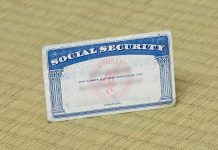
An Easy Way to Find Out What Federal Assistance Programs YOU Can Use
(IntegrityMag.com) – The inability to meet basic living expenses is something that many families throughout the country deal with regularly. However, the government recognizes that sometimes households need assistance to regain financial independence. As a result, they offer various programs designed to provide such aid for different circumstances.
Federal Programs To Consider
- Medical Care – Medicaid
- Housing Assistance – Housing Choice Voucher Program (Section 8)
- Nutrition Assistance – Supplemental Nutrition Assistance Program (SNAP)
- Short-Term Financial Assistance – Temporary Assistance for Needy Families (TANF)
- Energy/Utility Assistance – Low Income Home Energy Assistance Program (LIHEAP)
- Nutrition Assistance – Special Supplemental Nutrition Program for Women, Infants and Children (WIC)
Medicaid
Medicaid is funded jointly by the federal and state government and provides health coverage to millions of Americans. Medicaid helps ensure that low-income individuals have access to healthcare. Although Medicaid must align with federal requirements, it is administered by individual states, so requirements for eligibility vary by state. Potential applicants should check with their state Medicaid agency or the Health Insurance Marketplace to see if they qualify.
Housing Choice Voucher Program
The Housing Choice Voucher Program, also referred to as Section 8, is a federal rental assistance program that helps low-income families access safe, affordable housing. The program is administered through local Public Housing Authorities (PHA), which determine eligibility based on income, family sizes, and other relevant factors. If a household qualifies, they will receive a voucher that recipients can use to help pay for rent in the private market. The recipient may find a house, townhouse, duplex, or apartment that meets program requirements and use the voucher to help pay rent. To find out if they qualify, interested individuals should contact their local Public Housing Authority.
Supplemental Nutrition Assistance Program
The Supplemental Nutrition Assistance Program (SNAP) is a federal nutrition program designed to help low-income households fight food insecurity. If a family qualifies for SNAP, they will receive funds on an Electronic Benefits Transfer (EBT) card that works like a debit card. Recipients can then use the EBT card to purchase eligible food items or seeds and plants to grow food for consumption at retailers authorized to accept EBT.
Temporary Assistance for Needy Families (TANF)
Temporary Assistance for Needy Families is managed by the U.S. Department of Health and Human Services. It provides grant funding to states and territories, which provides financial assistance and support services to low-income families. The various programs may assist with childcare, work assistance, and job preparation. Since the state administers the programs, potential applicants should inquire about eligibility with their state agency.
Low Income Home Energy Assistance Program (LIHEAP)
For assistance with heating and cooling energy expenses, low-income households can check their eligibility for the Low Income Home Energy Assistance Program. LIHEAP assists with bill payments, weatherization, energy-related home repairs, and energy crisis assistance. The National Energy Assistance Referral (NEAR) project is a free service that provides information on applying for LIHEAP. Applicants can reach NEAR at 1-866-674-6327 or find more information at a state LIHEAP office.
Special Supplemental Nutrition Program for Women, Infants and Children (WIC)
Another valuable nutrition assistance program is the Special Supplemental Nutrition Program for Women, Infants and Children (WIC). This program assists eligible low-income individuals who are:
- pregnant
- postpartum
- breastfeeding, or
- infants and children up to 5 years of age
The assistance comes in the form of supplemental food (including formula and baby food), nutrition education, breastfeeding support, and access to necessary health and social services. Additionally, the associated WIC Farmer’s Market Nutrition Program provides coupons for fresh, locally grown fruits, vegetables, and herbs to those who are eligible to receive WIC. Interested individuals should contact their state agency.
These agencies can often provide referrals for additional services in the community, so those in need should contact them when they need help meeting basic needs while they work towards self-sufficiency and financial independence.
Copyright 2022, IntegrityMag.com













